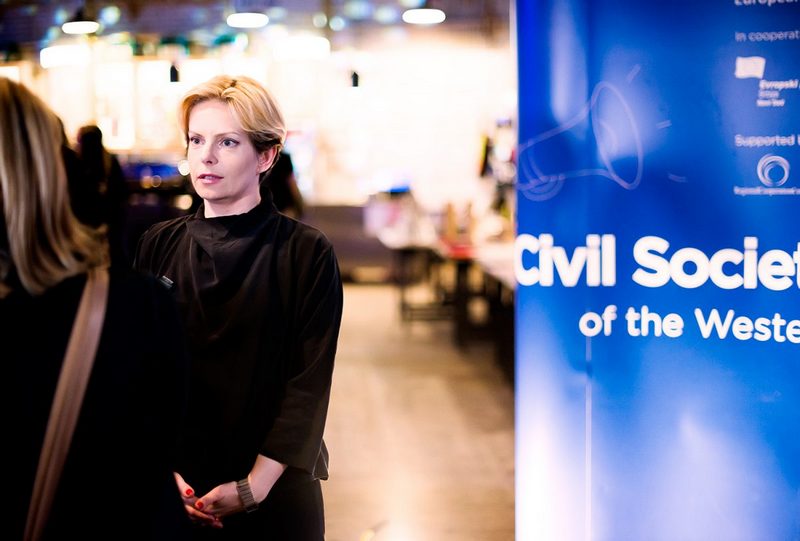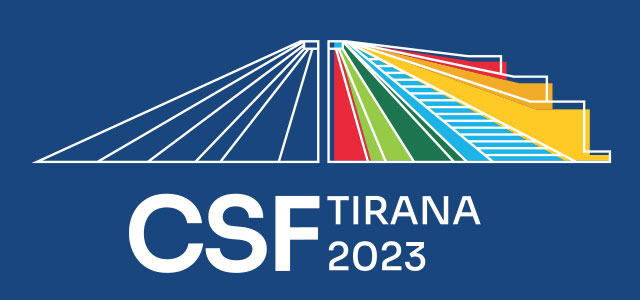|

(Interview with Hedvig Morvai for the Macedonian Daily Newspaper Nova Makedonija after the Civil Society Forum Belgrade, Author: Goce Trpkovski, June 3th, 2016)
EU IS FIGHTING FOR ITS POSITIONS IN THE BALKANS
What would you say is the reason why the EU and some of its most influential member-states stood behind the Berlin Process? More specifically, what’s in there for them?
With launching the Berlin Process in August 2014, the German government aimed at reinforcing the European perspectives of all Western Balkans countries. The 2014 Western Balkans Summit gathered political and business leaders from the region, EU officials and government representatives of selected EU member states with the objective of strengthening regional economic cooperation and working on the Connectivity Agenda for the Western Balkans covering transport and energy connections in the region and between the region and the EU. It was a great disencouragement for the region after the newly elected European Commission announced de facto marginalisation of the enlargement process at the European agenda.The summit launched a new mechanism supporting and enhancing specific areas of the European integration of the Western Balkans and giving additional leverage to its functional integration into the EU. This mechanism supplements the traditional institutional integration based on the adoption of the acquis communautaire (step by step, negotiating 35 chapters), aiming to fulfill the key conditions for full membership. At the same time, this way the EU hopes to reposition itself in strategic terms vis-a-vis strong actors as Russia,Turkey and China interested in the Balkans as well.The Berlin process is an important signal of re-engagement of the EU and its most influential member states in the Balkans. Furthermore, it is almost the last high political venue where the European future of the region is in the focus. The two summits held in Berlin and in August in Vienna were primarily dealing with economic integration, potential regional projects, migrations, the rule of law and with bilateral disputes among the WB countries.
We sometimes hear comments of the candidate countries from the Balkans getting tired of the integration process becoming longer and more complicated for them. Do you think that the EU is maybe being more careful with this last remaining unintegrated part of the continent, compared to previous enlargements?
More than a decade after the summit in Thessaloniki the promise of EU membership remains unfulfilled in the Western Balkans. And the longer the process is protracted, the greater the risks that elites and citizens in these countries consider the process either as hopeless or of little effect for their lives. The Balkan states have the demanding task of reconstructing post war institutions and societies, building and consolidating democracy and eventually becoming “good” member states of the EU. The Union’s enlargement strategy has managed to keep the process rolling; however the drawbacks of the current EU strategy are more and more obvious. What we see is front loading of conditionality in the early, pre-accession phases of the process coupled with strategic attention to specific political issues often at the expense of structural reforms and core EU conditions. This trend of retreating from agreed standards and procedures in the name of changeable priorities has reduced the speed and traction of the process, undermining its credibility in the region.The momentum generated immediately following the democratic changes in the region in 2000 has now been halted, and the current situation can be best described as the consolidation of unconsolidated democracies. Moreover, these days, with growing Russian, Turkish, Chinese and United States’ influence, “Europeanisation” in the Western Balkan countries is no longer “the only game in town”, with its alternatives arousing serious security concerns for the states, the region, and ultimately, for the European Union itself.The current EU enlargement strategy can be best described as “business as usual”, and yes, within that package it is obvious that the EU is not in a hurry to integrate countries which do not demonstrate the readiness to fulfil the accession criteria, what is a lesson learned for the EU from its past enlargements
Due to the specific political situation concerning Macedonia, the people of this country keep hearing news about “measures” that would be taken by the EC, and constant rumors about possible sanctions. Do you believe that sanctions can be an appropriate way of dealing with authoritarianism and other problems of democracy in the Balkans? Or they would really be only last instance measure, after everything else is attempted?
There are experiences with introducing sanctions in this part of the world already. Looking at the political landscape in the region and watching the behavior of our political elites, I am afraid that sanctions would mostly affect the lives of ordinary citizens rather than to provoke the expected political change.
The Civil Society is deeply involved in its attempt to resolve the political crisis in Macedonia, but it’s stigmatized for being “traitorous”, “foreign-collaborative” etc (not only the case with Macedonia but also other surrounding countries). How to challenge these views?
The civil society throughout the region is in a very challenging situation. The complex socio-political and economic situation, paired with backsliding of democracy, forces the reform oriented civil sector in a troublesome position. It is especially difficult for watchdog organisations and those dealing with human rights issues, not to be marked as the “state enemy”. In addition, the lack of financial support, local and international, makes the organised part of the civil society struggle with basic needs. The attention of the large international donors has shifted to other regions for many years ago, and domestic, sustainable sources of support have never been established. Civil society as integral part of the accession process appears more and more as a mantra than an accepted reality. Those, who manage to push through their efforts, crossing tremendous obstacles, provide a significant support to the process. Which, is again, rarely recognised by the decision makers. That is why such initiatives, as the Civil Society Forum of the Berlin Process is important, both as advocacy effort and actual demonstration of the ways how civil society organisations can be valuable partners to their governments in many fields what often are not obviously linked to civil society (even energy or infrastructure). A modern and EU oriented state needs a democratic leadership including a respectful dialogue between all actors of politics and society.
Should the CSOs get a chair on the negotiating table, or there are also other ways how its views and suggestions can be incorporated in the final solutions, and its interests represented?
The wide spectrum of different open issues in the region requires the CSOs that are committed to play an important role in social, political and economic changes in their countries and in the region to develop and implement different strategies, methods and mechanisms. These changes are also part of the European integration process, where CSOs already play a visible role. During the Vienna Western Balkans Summit a window of opportunity was created for civil society organisations to offer partnership to their governments in working on the most pressing issues of their societies. A number of organisations from all over the region gathered and raised their voices about topics of great concern, confronting the political leaders with challenging questions and articulating their proposals. The “civil society process” and the “Berlin process” share the same challenge: both must become processes for achieving the results they stand for. So far, both “processes” are work in progress, with great hopes.
The original interview in Macedonian can be found at: link
